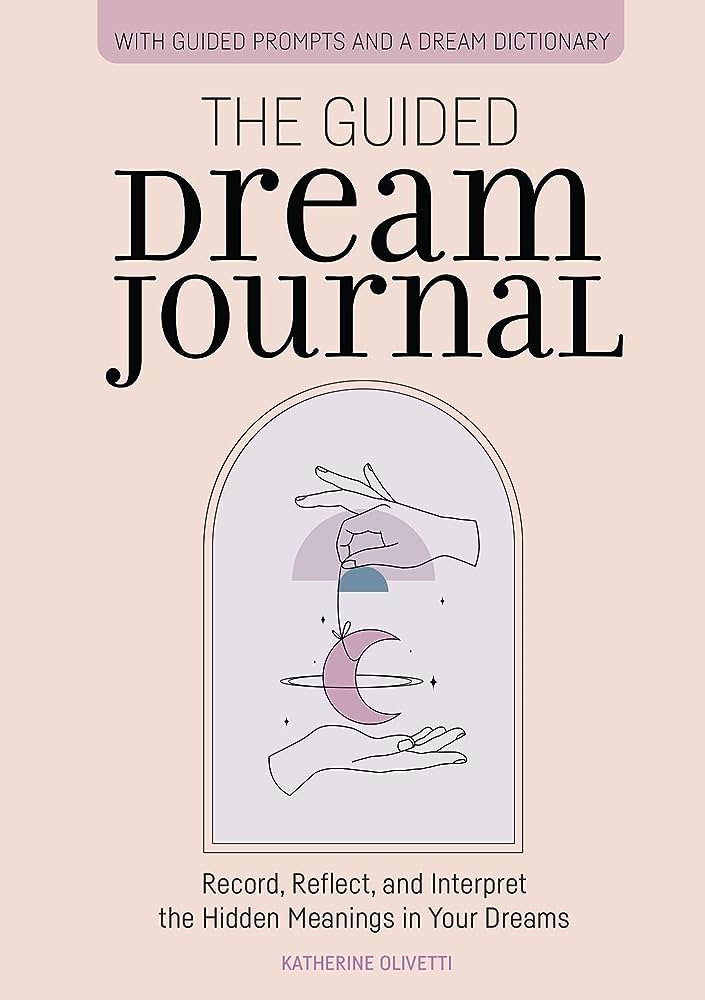Introduction:
Have you ever woken up from a vivid dream, wondering what it meant? Dreams have always fascinated humans, and throughout history, we have sought to interpret their hidden messages. Dream journaling is a powerful tool that can help unlock the meaning behind your dreams and provide insights into your subconscious mind. In this blog post, we will explore the benefits of dream journaling and provide you with practical tips on how to interpret your dreams effectively.
Understanding the Power of Dreams

Dreams have long fascinated humans, offering a glimpse into the mysterious realm of the subconscious mind. They can be filled with vivid images, emotions, and experiences that leave us pondering their meanings. One way to unravel the secrets of our dreams is through the practice of dream journaling. By recording and interpreting our dreams, we can gain valuable insights into our inner selves and uncover hidden messages from our subconscious. In this article, we will explore the art of dream journaling and discover effective techniques to help us interpret our dreams.
The Importance of Keeping a Dream Journal
Keeping a dream journal is an essential tool for anyone interested in understanding their dreams. By regularly writing down our dreams, we create a record of our subconscious experiences. This process enables us to identify recurring themes, symbols, and patterns within our dreams, providing valuable clues for interpretation. Moreover, maintaining a dream journal can improve dream recall, as the act of recording our dreams trains our mind to pay closer attention to them. With time and practice, we can develop a stronger connection with our dreams and derive greater meaning from them.
Getting Started with Dream Journaling
Starting a dream journal is a simple yet profound practice. Begin by placing a notebook and pen beside your bed. Before going to sleep, set the intention to remember your dreams and be open to receiving their messages. Upon waking up, reach for your journal and jot down any details, emotions, or fragments of your dream that you can recall. Don’t worry about writing complete sentences or capturing every detail – the key is to capture the essence of the dream while it is still fresh in your mind.
When writing in your dream journal, use the present tense to describe your dreams. This helps to immerse yourself back into the dream and make it feel more vivid. Include as much detail as possible, such as the location, people, objects, colors, and emotions experienced in the dream. Additionally, pay attention to any recurring symbols or themes that you notice over time.
Decoding Your Dreams: Tips for Interpretation
Interpreting dreams is a highly personal endeavor, as the symbols and meanings can vary from person to person. However, here are some tips to help you unlock the potential of your dreams:
1. Keep an Open Mind
Avoid approaching your dreams with preconceived notions or rigid interpretations. Embrace the fluidity and symbolism of dreams, allowing them to reveal their meanings naturally.
2. Identify Symbols and Patterns
Pay attention to recurring symbols or patterns in your dreams. These may hold significant meaning and can serve as a starting point for interpretation. Consider the emotions associated with these symbols to gain deeper insights.
3. Explore Personal Associations
Reflect on your personal associations with certain symbols or images in your dreams. These associations may stem from childhood experiences, cultural influences, or personal beliefs. Understanding your unique connections can provide valuable insights into your dreams.
4. Analyze Emotions and Feelings
Take note of the emotions you experienced during your dream. Emotions often serve as indicators of your subconscious state and can provide valuable guidance in understanding the underlying messages in your dreams.
5. Consider Context and Narrative
Look beyond the individual symbols and consider the overall context and narrative of your dream. How do the different elements relate to each other? What story is being told? Analyzing the bigger picture can shed light on the underlying themes and messages.
Dream Journaling: How to Interpret Your Dreams
Summary
Dream journaling is a useful practice for anyone interested in self-discovery and gaining a deeper understanding of their subconscious mind. By recording your dreams regularly, you create a personal database of symbols, patterns, and emotions that can be analyzed for insights. This journal can serve as a valuable tool in exploring your fears, desires, and unresolved issues. In this article, we will guide you through the process of dream journaling and offer techniques to help interpret the symb i loved this olism and meanings behind your dreams. So, get ready to uncover the hidden messages of your dream world and embark on a journey of self-discovery!

Welcome to my website! My name is Jack Rosman, and I am a professional Dream Psychologist dedicated to helping individuals achieve better sleep, understand their dreams, and improve their overall well-being. With years of experience in the field, I am passionate about providing effective snoring solutions, sleep therapy, sleep supplements, and dream analysis to enhance the quality of your sleep and unlock the hidden messages within your dreams. Read More
